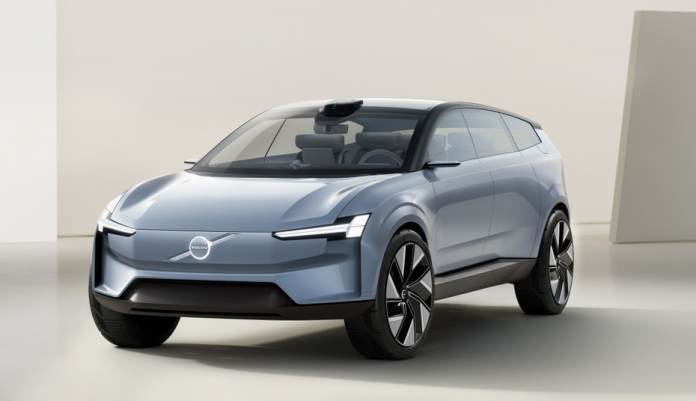Volvo’s third electric model will be the battery-powered version of the new XC90. It is an SUV that will be presented next year. Thanks to a report by Autocar, further details emerge about this car that will be very important for the electrification plans of the automaker. As we know, Volvo intends to become an electric-only brand from 2030.
SPA2 PLATFORM
The design will incorporate many of the elements seen within the Recharge concept car. The new generation of the XC90 will be based on Volvo’s SPA2 platform, which can also accommodate endothermic engines. Although this platform is not exclusive to electric cars, it is proposed in two distinct versions. Therefore, the electric XC90 will have many of those advantages of battery-powered cars developed expressly on dedicated platforms.
The electric model, therefore, will be able to count on reduced overhangs and on a completely flat internal floor. The endothermic versions, on the other hand, will have more traditional proportions given the need to accommodate a combustion engine, transmission and an exhaust system. For later electric models, Volvo should also use Geely’s SEA platform.
The Recharge concept suggested that the future model will continue to favor features such as space and practicality even if it will have a different design from that of the current XC90. After all, today’s generation is very popular and sells a lot. The interior will be stylish and will be made from sustainable materials. Obviously, many of the particular design features of the concept will be revised in the production model. However, thanks to the flat floor it will be possible to have a lot of space on board. In fact, the SUV will also be offered with three rows of seats and therefore with the possibility of being able to accommodate up to 7 passengers on board.
The passenger compartment should have a minimal design. Most of the functions can be controlled through the large central infotainment display that will be equipped with a platform developed in collaboration with Google. There are, for the moment, no particular indications regarding the engines. Given that the brand is focusing heavily on electrification, it is very likely that endothermic powertrains will adopt some form of electrification. Diesel engines should not be there.
The electric model should have different powertrains than those found on Volvo’s current electric cars. Very likely, given the size of the SUV, that the scheme always provides for two electric motors to be able to have all-wheel drive. Probably, the SUV will be marketed with different capacities of the battery pack. In the top-of-the-range model, the mileage should be close to 500 km. All that remains is to wait for more information about the development of this car.
































